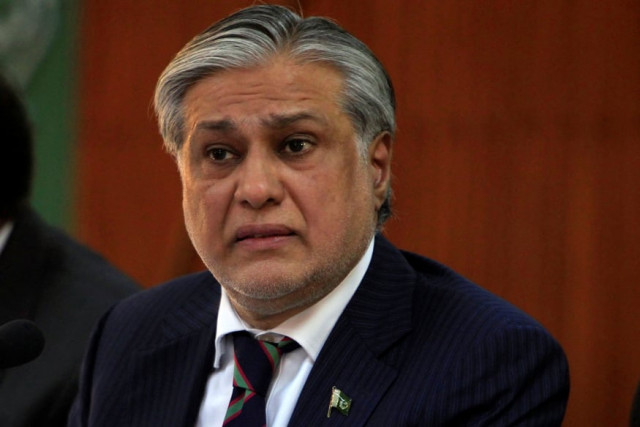Dar’s rupee melodrama
Exploiting public sentiments through his love for a stronger rupee

Ishaq Dar. PHOTO: REUTERS
By any measure, the exchange rate moved but little during his four years stint. For instance, the yearly average was Rs103, 101, 104 and 105 per US dollar. In July 2017, a fall to Rs108 a dollar made him furious. An acting governor of the State Bank took his autonomy seriously by not going against the market. Betraying his brand of pseudonomics, Dar described the depreciation as “artificial” and wanted to fix the person responsible for it. To him the nearly flat exchange rate was a symbol of economic stability and the attempt to bring it down was a conspiracy to turn the public sentiment against him and the government.
One artificiality led to another. To continue the melodrama, he doubled the liquid foreign exchange reserves from nine billion dollars to $18 billion in his first three years. Although the oil price had crashed before he took over the finances of the country, he was able to show an even lower price due to a stronger rupee. The gimmick of not passing on the full price to the consumer also won him applause. As a result, inflation was less than five per cent. Cheaper imports of all types of consumer goods kept his main constituency — the traders — happy. A capital account that had been liberalised well before the trade account and strong rupee incentivised money laundering.

Foreign exchange reserves were piled up, not through export earnings as these fell from 10.2% of GDP to 7.2% of GDP in his four years. Indeed the gains of the hard-won preference under the GSP Plus scheme from the EU were considerably eroded by the strong rupee policy. Instead, the reserves were built through a policy of beg, borrow and steal. Total debt shot up from 69.4% of GDP to 75.2% of GDP in his four years and 82.6% of GDP in the last fiscal year of his party’s government. Of this the external debt and liabilities were 26.7; 27.3 and 30.4% of GDP.
The misplaced emphasis on financials was at the expense of real job creating growth. In Dar’s first three years, agricultural growth nosedived from the already low level of 2.5% to 0.15%, while manufacturing growth declined from 5.6 to 3.7%. The services sector, a poor generator of jobs, grew faster. Within the services sector, the highest growing were the sub-sectors of finance and insurance, and the general government services.
A strong currency resulting from a current account surplus does reflect a strong economy. Even here, there is the risk of catching the Dutch disease if the economy is not sufficiently diversified. Currency appreciation with deficits in trade as well as current account can only be described as the Dar disease.
Published in The Express Tribune, October 11th, 2019.
Like Opinion & Editorial on Facebook, follow @ETOpEd on Twitter to receive all updates on all our daily pieces.















COMMENTS
Comments are moderated and generally will be posted if they are on-topic and not abusive.
For more information, please see our Comments FAQ